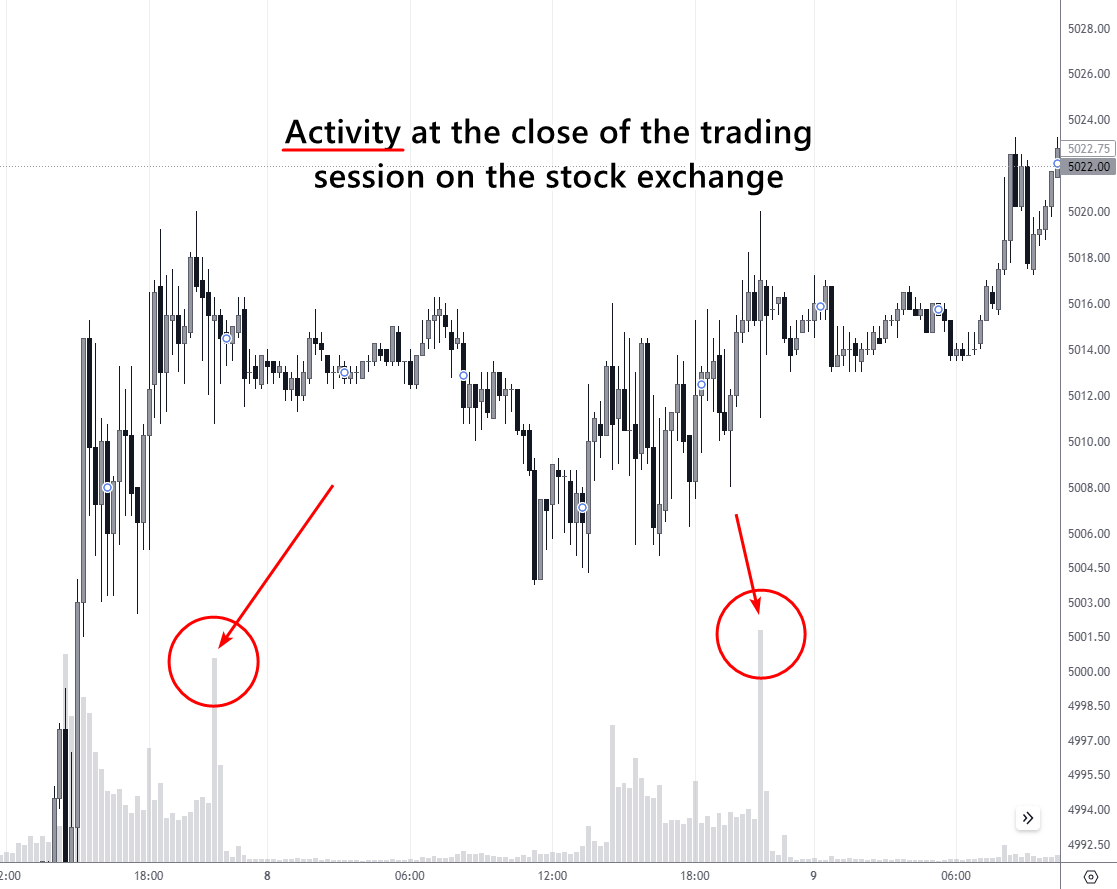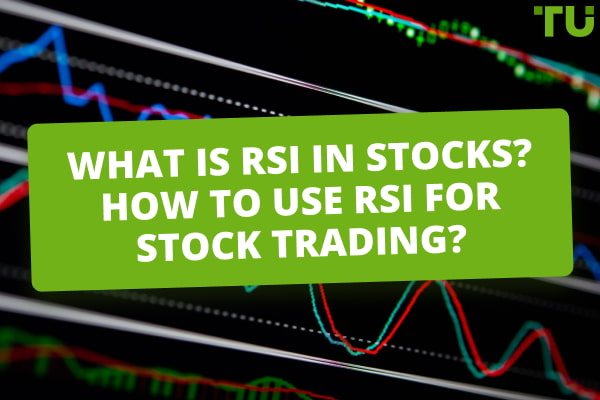Trading Hours of the World’s Major Stock Exchanges

Top commission-free stock broker - eToro
Trading hours of the world’s major stock exchanges (local time):
| Stock Market | Trading Hours |
|---|---|
|
London Stock Exchange |
8 am - 4:30 pm GMT |
|
New York Stock Exchange |
9:30 am - 4:pm ET |
|
NASDAQ |
9:30 am - 4:pm ET |
|
Euronext (Paris) |
9 am - 5:30 pm CET |
|
Deutsche Börse |
9 am - 5:45 pm CET |
|
SIX Swiss Exchange |
9 am - 5:20 pm CET |
|
Borsa Italiana |
9 am - 5:40 pm CET |
|
Tokyo (Japan) |
9 am - 3 pm JST |
|
Korea Exchange (KRX) |
9 am - 3:30 pm KST |
|
Shanghai (China) |
9:30 am - 3 pm CST |
|
Bombay (India) |
9:15 am - 3:30 pm IST |
|
Saudi Stock Exchange |
10 am - 3 pm AST |
In the world of finance, the understanding of stock market hours is not just a matter of scheduling - it’s a strategic advantage. The opening bell heralds a flood of transactions, while the closing signals a wrap of the day’s drama. Between these bookends lies the pulse of the markets, the frenzy of traders, and the ebb and flow of fortunes.
For the savvy investor or the curious novice, an awareness of when these events unfold is pivotal to navigating the complex dance of buying and selling shares. It is the rhythm that sets the tempo for decisions that can result in significant financial outcomes.
-
What time can I buy stocks?
You can purchase stocks during the regular trading hours of the stock exchange on which they're listed, typically from 9:30 AM to 4:00 PM Eastern Time for U.S. markets. Additionally, you may buy stocks in pre-market or after-hours trading sessions, which extend beyond the standard trading hours. It is due to additional bidding outside the main trading session that the closing and opening prices are sometimes very different.
-
What it is рre-market and post-market?
Pre-market (or opening auction): the time before the start of trading when market bids can be placed - the data is processed automatically by the exchange software.
Postmarket (closing auction): the time after the close of the main session when it is possible to place pending market orders to buy/sell at the opening of the exchange on the next day. -
Why do we need a pre-market and post-market?
The idea of expanding the trading session is related to competition between exchanges and the desire to increase the client base. For example, on U.S. trading floors, the pre-market lasts 5 hours and 30 minutes, and the post-market - 4 hours. They operate on the following principle: when the platform provides more time for speculation, traders will not visit other platforms to make transactions
-
What is close in the stock market?
The close in the stock market refers to the end of an exchange's official trading hours, at which point the final prices of stocks are determined for the day. In the U.S., this is typically at 4:00 PM Eastern Time for major exchanges like the NYSE and NASDAQ.
-
What hours are trading hours?
Trading hours for stocks are the specific times during which an exchange is open and securities are traded. For the major U.S. stock exchanges, regular trading hours are from 9:30 AM to 4:00 PM Eastern Time, Monday through Friday, excluding market holidays.
-
What time does the stock market close pacific time?
For investors in the Pacific Time zone, the U.S. stock market closes at 1:00 PM. After-hours trading on these exchanges can continue until 5:00 PM Pacific Time.
What are the trading hours for stock exchanges?
The heartbeat of the global economy, stock exchanges, operate on a meticulously timed schedule. This schedule typically spans five days a week, accommodating traders and investors across various time zones. While trading hours are largely standardized, nuances such as holidays, lunch breaks, and extended hours due to pre-market and post-market sessions add layers of complexity. Find out what time the stock market opens in the TU article.
Particularly noteworthy is the closing time of stock exchanges, a period often characterized by heightened volatility. In these final moments, traders scramble to close positions or capitalize on last-minute developments, causing price fluctuations that can be both perilous and profitable.

Activity at the close of the trading session on the stock exchange
The accompanying image illustrates this phenomenon, showcasing the closing activity on a stock exchange with notable spikes in trading volume and price variability.
Understanding these patterns is critical for those looking to either safeguard their investments or exploit the opportunities presented by these often tumultuous windows of time. The graph, marked by arrows indicating significant movements, serves as a visual testament to the closing time's unpredictability. It is a stark reminder that in the world of stock trading, timing truly does matter.
What time does the stock market close in the US?
In the United States, the ringing of the closing bell marks the end of an official trading session, a sound synonymous with the wrap-up of frenetic activities on Wall Street. Major US stock exchanges, such as the New York Stock Exchange (NYSE) and NASDAQ, conclude their trading at 4:00 PM Eastern Time (ET). However, after-hours trading sessions extend this window, allowing transactions to continue until 8:00 PM ET.
The standard timings for these exchanges are as follows:
| Exchange | Opening Bell | Closing Bell | After-Hours End |
|---|---|---|---|
NYSE |
9:30 am ET |
4:00 pm ET |
8:00 pm ET |
NASDAQ |
9:30 am ET |
4:00 pm ET |
8:00 pm ET |
It's worth noting that pre-market trading begins as early as 4:00 AM ET for the NASDAQ, and post-market activity can be a harbinger of the following day's market mood. Certain holidays and special events can alter these times, with the market closing early, typically at 1:00 PM ET, on days such as Black Friday and Christmas Eve.
The interplay between these times is significant for global investors, who must juggle time zones to engage with the US market effectively.
What are the trading hours in the UK?
The United Kingdom's stock market, led by the London Stock Exchange (LSE), operates on a different timetable. Official trading hours begin at 8:00 AM and draw to a close at 4:30 PM Greenwich Mean Time (GMT), with no designated lunch break disrupting trading activity. Here are the core hours for the LSE:
| Exchange | Opening Auction | Regular Trading | Closing Auction |
|---|---|---|---|
LSE |
7:50 am GMT |
8:00 am GMT |
4:30 pm GMT |
Unlike its American counterparts, the LSE does not offer an extended trading period after the closing auction, emphasizing the importance of the 4:30 PM closing auction as a price-setting mechanism for stocks.
On the last Friday of each month, the LSE experiences what is known as the "witching hour," where trading volumes can surge due to the simultaneous expiration of various derivatives. This event, along with other market anomalies, such as the "Santa Rally," are quintessential facts that underscore the unique characteristics of trading on the LSE.
Global traders need to account for these idiosyncrasies and seasonal adjustments when engaging with UK stocks.
What time does the stock market close in Europe?
Europe's financial heartbeat is regulated by multiple stock exchanges, each with its own set of trading hours. The Euronext, which amalgamates exchanges from cities like Paris and Amsterdam, and Frankfurt's Deutsche Börse Xetra are two of the continent's prominent marketplaces. The Euronext closes at 5:30 PM Central European Time (CET), while the Xetra concludes its trading at 5:45 PM CET.
Below is a table with the trading hours of key European stock exchanges:
| Exchange | Opening Time | Closing Time |
|---|---|---|
Euronext (Paris) |
9:00 am CET |
5:30 pm CET |
Deutsche Borse |
9:00 am CET |
5:45 pm CET |
SIX Swiss Exchange |
9:00am CET |
5:20 pm CET |
Borsa Italiana |
9:00 am CET |
5:40 am CET |
These exchanges typically do not operate extended hours similar to the US markets. Additionally, their closing times are orchestrated through a complex closing auction system designed to determine the end-of-day prices.
Investors should also be aware of the half-day trading sessions that occur on Christmas Eve and New Year's Eve, when markets close early. The interconnection of these markets with the US and Asia also plays a crucial role in the ongoing relay of financial activity around the globe.
Trading hours in Asia & Middle East
Asia and the Middle East's financial markets offer a diverse range of trading hours, reflecting the geographical and economic diversity of the regions. The Tokyo Stock Exchange in Japan, for instance, closes at 3:00 PM Japan Standard Time (JST), while the Saudi Stock Exchange (Tadawul) ends its session at 3:00 PM Arabian Standard Time (AST).
Here's a brief overview of some key stock exchanges in Asia and the Middle East:
| Exchange | Opening Time | Closing Time |
|---|---|---|
Tokyo (Japan) |
9:00 am JST |
3:00 pm JST |
Korea Exchange (KRX) |
9:00 am KST |
3:30 pm KST |
Shanghai (China) |
9:30 am CST |
3:00 pm CST |
Bombay (India) |
9:15 am IST |
3:30 pm IST |
Saudi Stock Exchange |
10:00 am AST |
3:00 pm AST |
The trading hours in these regions take on additional complexity due to lunch breaks, with markets like Tokyo and Shanghai closing midday for an hour. Moreover, these exchanges are instrumental in setting the stage for the European and American markets due to the time zone differences.
Holidays such as Lunar New Year and Diwali can significantly impact trading schedules and volumes in these markets. Hence, global traders must maintain a keen eye on the local cultural and economic events that could affect trading hours and market behavior.
Best stock brokers
Can you trade stocks from another country?
The globalized nature of today's economy means that trading stocks from another country is not just possible, it's increasingly common and accessible. With the advent of the internet and brokerage accounts that offer international trading options, investors can diversify their portfolios by tapping into overseas markets.
Such diversification can potentially lead to higher returns and provides exposure to different economic cycles, which can be beneficial in times of domestic market downturns.
When considering international stock trading, investors typically open a brokerage account with platforms that provide access to global exchanges. These accounts are often equipped with tools and resources to assist in currency conversions, accessing real-time international market data, and understanding the various regulations and tax implications involved in cross-border trading.
However, trading stocks from another country comes with its own set of challenges and risks. One of the primary considerations is the currency exchange risk. Fluctuations in currency values can significantly affect the return on investment.
Additionally, different time zones mean that foreign markets may be open when it is inconvenient for the investor's schedule, potentially leading to missed opportunities or the need for more complex arrangements for trade execution.
The pros and cons of trading internationally boil down to:
👍 Pros:
• Access to a broader range of stocks and sectors not available domestically.
• Potential for higher growth in emerging markets.
• Diversification of portfolio risk.
👎 Cons:
• Higher transaction costs and fees.
• Complexity of tax laws and potential for double taxation.
• Political and economic risks associated with the specific country.
While international stock trading can be a gateway to a world of opportunities, it requires an elevated level of due diligence, awareness of global economic indicators, and an understanding of the intricacies of international finance. Investors must weigh the benefits of diversification against the complexities and potential risks involved in navigating the global stock market landscape.
Conclusion
Comprehending the tapestry of global stock market hours is pivotal for informed trading and investment strategy. From the US to Europe, and across Asia to the Middle East, each market's unique operational hours reflect the intricate global financial ecosystem.
While trading stocks from other countries offers the allure of diversification and potential growth, it also demands a keen understanding of the associated risks and logistics. Ultimately, the astute investor must navigate these waters with both caution and a global perspective, equipped with the knowledge that timing and knowledge are as crucial as capital in stock trading.
Glossary for novice traders
-
1
Broker
A broker is a legal entity or individual that performs as an intermediary when making trades in the financial markets. Private investors cannot trade without a broker, since only brokers can execute trades on the exchanges.
-
2
Trading
Trading involves the act of buying and selling financial assets like stocks, currencies, or commodities with the intention of profiting from market price fluctuations. Traders employ various strategies, analysis techniques, and risk management practices to make informed decisions and optimize their chances of success in the financial markets.
-
3
Investor
An investor is an individual, who invests money in an asset with the expectation that its value would appreciate in the future. The asset can be anything, including a bond, debenture, mutual fund, equity, gold, silver, exchange-traded funds (ETFs), and real-estate property.
-
4
Diversification
Diversification is an investment strategy that involves spreading investments across different asset classes, industries, and geographic regions to reduce overall risk.
-
5
After-Hours Trading
After-hours trading occurs outside of regular market hours, allowing investors to react to news and events that arise after the official market close.
Team that worked on the article
Vuk stands at the forefront of financial journalism, blending over six years of crypto investing experience with profound insights gained from navigating two bull/bear cycles. A dedicated content writer, Vuk has contributed to a myriad of publications and projects. His journey from an English language graduate to a sought-after voice in finance reflects his passion for demystifying complex financial concepts, making him a helpful guide for both newcomers and seasoned investors.
Dr. BJ Johnson is a PhD in English Language and an editor with over 15 years of experience. He earned his degree in English Language in the U.S and the UK. In 2020, Dr. Johnson joined the Traders Union team. Since then, he has created over 100 exclusive articles and edited over 300 articles of other authors.
Mirjan Hipolito is a journalist and news editor at Traders Union. She is an expert crypto writer with five years of experience in the financial markets. Her specialties are daily market news, price predictions, and Initial Coin Offerings (ICO).











